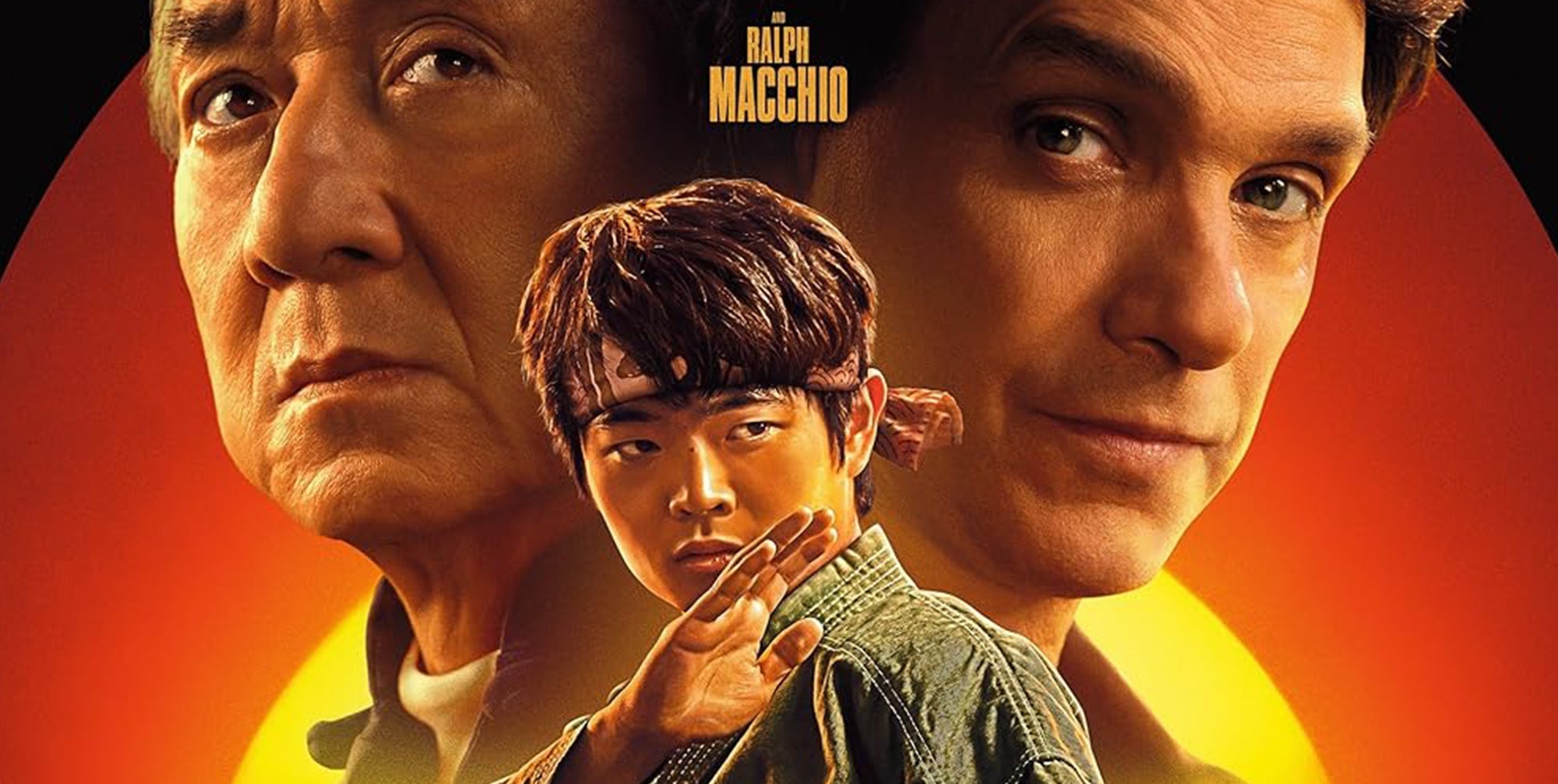

· By Spencer Hardegree
Karate Kid: Legends (2025) – A Comprehensive Review
Bad sequels walk so that great legacies can run again, and “Karate Kid: Legends” attempts to do just that. This 2025 installment in the ever expanding Karate Kid universe is the cinematic equivalent of a flying crane kick aimed squarely at nostalgia, redemption arcs, and fresh fists of fury. With the return of both Jackie Chan and Ralph Macchio, and the introduction of a new martial arts hero in Ben Wang’s Li Fong, this film is punching for multi generational glory.
Let’s dive into the dojo.
Plot Overview
The film follows Li Fong (Ben Wang), a Chinese teenager trained in kung fu who moves to New York City with his mother (Ming Na Wen). Promising her he’ll avoid fighting after the tragic death of his brother, Li’s vow is challenged almost immediately by the gritty chaos of Queens. He forms an unlikely friendship with Victor Lipani (Joshua Jackson), a washed up boxer who runs a pizza shop and is entangled with local loan sharks. One act of heroism launches Li back into the world of martial arts.
This leads him to cross paths with Mr. Han (Jackie Chan), who has come to New York after years of spiritual retreat. Mr. Han senses greatness and conflict in Li, and decides to mentor him. Add Daniel LaRusso (Ralph Macchio), who enters the fray as a co mentor and touchstone to the original trilogy, and the film builds a cross generational bridge few franchises even attempt.
Li eventually trains for the Five Boroughs Karate Tournament, culminating in a showdown with Connor Day (Aramis Knight), a brutal fighter and ex boyfriend of Li’s crush, Mia (Sadie Stanley).

Characters and Performances
Ben Wang as Li Fong
Ben Wang carries the film with a sincerity that is hard to ignore. Li isn’t your standard reluctant hero he’s cautious, guilt ridden, and genuinely scared of his potential for violence. Wang’s performance humanizes Li’s internal battle with guilt and rage, and his growth through the film is gradual and well paced. His fight scenes are as emotionally intense as they are physically demanding.
Jackie Chan as Mr. Han
Chan returns with surprising emotional depth. This isn’t the wise cracking kung fu uncle of yesteryear Mr. Han is haunted by the consequences of violence and plays his role more like a Zen philosopher than a slapstick sensei. His chemistry with Li is subtle and paternal, and the scenes where he spars with Daniel are some of the most emotionally charged in the film.
Ralph Macchio as Daniel LaRusso
LaRusso is no longer a student, but he’s also not a master. His journey feels like a man realizing that teaching isn't about reliving your glory days. His mentorship is softer, more compassionate, and grounded in the teachings of Mr. Miyagi. Macchio plays him with quiet intensity, making his presence felt without ever stealing the spotlight.
Joshua Jackson as Victor Lipani
Victor is a highlight. His character is weathered, funny, and deeply flawed. Joshua Jackson brings gravitas and charisma to what could have been a throwaway sidekick role. Victor isn’t just comic relief he’s a man who’s been beaten by life but still shows up, pizza box in hand.
Sadie Stanley as Mia
More than just a love interest, Mia brings her own arc. A former competitive martial artist who quit after an injury, she challenges Li emotionally and mentally. Stanley avoids clichés, creating a layered, likable character who gives the film emotional heft.
Aramis Knight as Connor Day
Knight is pure menace. Connor’s fighting style is brutal and efficient, echoing Cobra Kai’s “strike first, strike hard” motto. He’s not a villain by accident he’s a product of toxic coaching and fragile masculinity, and Knight plays it to perfection. His final showdown with Li is less a fight and more a philosophical clash.
Direction and Style
Jonathan Entwistle, known for “The End of the F World,” brings an indie sensibility to what could have been a formulaic sequel. The fights are tight and grounded, the pacing is crisp, and the emotional beats actually land. Instead of relying on quick cuts and shaky cam, the action is shot with clarity and impact.
Justin Brown’s cinematography deserves praise for contrasting the neon grime of New York with serene training montages in urban parks, rooftops, and underground dojos. Every shot has purpose, from sweat beading off a glove to slow motion dust flying after a devastating roundhouse.

Themes and Symbolism
At its core, “Karate Kid: Legends” is about legacy what we inherit, what we reject, and what we build. Li is a symbol of cultural fusion, trained in kung fu but competing in karate. His dual mentorship between Han and LaRusso reflects a broader conversation about East West philosophies of violence, discipline, and honor.
The tournament isn’t just about glory it’s about reclaiming identity. For Victor, it’s about redemption. For Daniel, it’s about letting go. For Han, it’s a last chance to pass down wisdom. And for Li, it’s about balance: between his mother’s wishes, his brother’s shadow, and his own rising power.
Nostalgia vs. New Ground
“Karate Kid: Legends” balances fan service with new storytelling. You’ll catch callback, the crane kick, a wax on wax off joke, even a familiar Miyagi style bonsai, but they’re not just shoehorned in. They matter to the characters and the plot.
Where the film shines is in its boldness. It doesn’t just try to repeat what worked, it evolves. The hybrid kung fu karate training, the urban New York setting, and the intergenerational mentorship give it a flavor all its own.
Critics and Fan Reception
Critical consensus is split, but mostly positive. Some say the film is too busy, with three mentors and a half dozen storylines. Others praise it for its ambition and emotional payoff. Fans, especially those raised on the original trilogy and “Cobra Kai,” seem to love it.
Ben Wang is already being floated as the next breakout martial arts star. Online discourse is buzzing with theories about sequels, potential Cobra Kai crossovers, and what the “Five Boroughs Tournament” will mean for the franchise.
Final Word
“Karate Kid: Legends” is not just another reboot. It’s a baton pass, a respect filled handshake between generations. It honors the past while building a future. With great performances, solid direction, and enough emotional grit to make you care, it earns its black belt in franchise revival.
It might not be perfect, but it never had to be. It just had to make you believe again.
And it does.
Risky Rating: 7.5 out of 10
This one might divide fans. Purists may scoff at mixing kung fu and karate under one roof, and some might find the emotional swings a little melodramatic. But for a franchise that could have coasted on nostalgia, “Karate Kid: Legends” dares to evolve and that’s worth raising an eyebrow and a glass.

